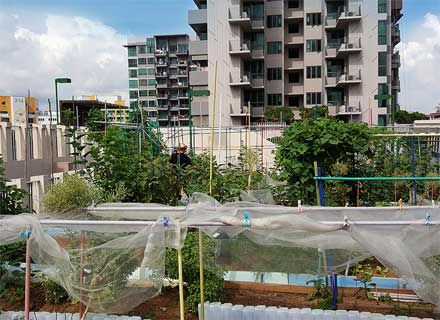In Singapore, Eyleen Goh manages a farm from the top deck of a parking garage.
The farm also sells up to 400kg of vegetables per day to neighboring merchants, according to her, making it no little operation.
She claims that despite Singapore’s tiny size, there are many parking lots here. Having farms [here] to provide for the needs of the community’s citizens is essentially the dream.
These rooftop farms have now appeared all across the South East Asian city-state, numbering at least a dozen.
In 2020, the government began leasing the odd plots as part of its goal to boost domestic food production. Currently, the 5.5 million-person nation imports more than 90% of its food.
But because there is little room in this highly populated island nation, the land is expensive. The most expensive real estate in the world is found in Singapore.
One farmer told the BBC that he had to give up his initial parking lot plot due to the high price and relocate to a less expensive area.
The operations were in full swing when BBC News visited Goh’s farm, which is approximately the size of a football pitch.
Choy sum, a leafy green vegetable used in Chinese cookery, was being picked, prepared, and packaged by workers.
Another worker was repotting seedlings at the opposite end of the building.
Goh states that every day we are harvesting. The amount each day might vary depending on the vegetables we are cultivating, from 100kg to 200kg to 400kg.
She estimates that launching the farm cost about USD 1 million, with a large portion of the funds going toward equipment to facilitate faster harvesting.
Despite certain subsidies, Goh claims her company is still not viable.
She has 10 staff and pays rent for the location as well as another car park plot, which is still being developed, for about USD 90,000.
Since we were establishing up during the COVID pandemic, Goh continues, logistics were far more difficult and expensive.
The process was also brand-new to everyone because this was the government’s first rooftop parking tender, she continues.
Singapore’s rooftop farmers are also developing alternative sources of income.

